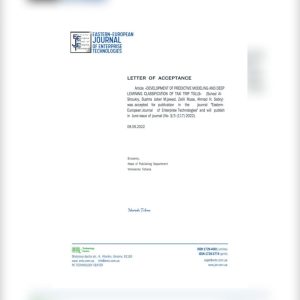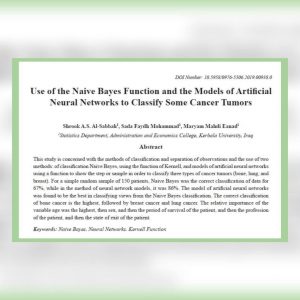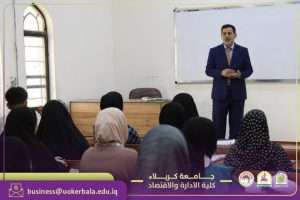The Department of Statistics at the College of Administration and Economics organized a training workshop titled “The Mechanism of Conducting University Exams Using Bubble Sheet Technology,” as part of the ongoing efforts to develop academic evaluation methods and enhance the efficiency of exams in line with the latest globally recognized technologies.
The workshop was delivered by Dr. Hamza Imad Abbas Debis, who discussed the importance of Bubble Sheet technology in university exams, its role in improving the accuracy of evaluations, and reducing human errors in answer correction. This contributes to enhancing the integrity and objectivity of the tests.
During the workshop, the following key topics were highlighted:
- The concept of Bubble Sheet technology, how it works, and its application in university exams.
- Designing exam questions according to this technology, focusing on objective-type questions (multiple-choice questions).
- How to correct papers using scanners and specialized software to ensure quick and accurate correction.
- The advantages of this technology compared to traditional methods, and the main challenges academic institutions may face when applying it.
The workshop was attended by a number of faculty members and students, who showed great interest in the technology and participated in interactive discussions on ways to improve the quality of exams and enhance their credibility through the implementation of this modern mechanism.
At the conclusion of the workshop, Dr. Hamza Imad Abbas Debis emphasized the importance of adopting Bubble Sheet technology in university exams, given its multiple benefits in speeding up the correction process and reducing errors, thereby contributing to the development of the educational process and improving academic performance.
This workshop is part of the College of Administration and Economics – Department of Statistics’ commitment to keeping up with technological advancements in the field of education and evaluation, thus enhancing the quality of higher education and meeting academic excellence standards.































































